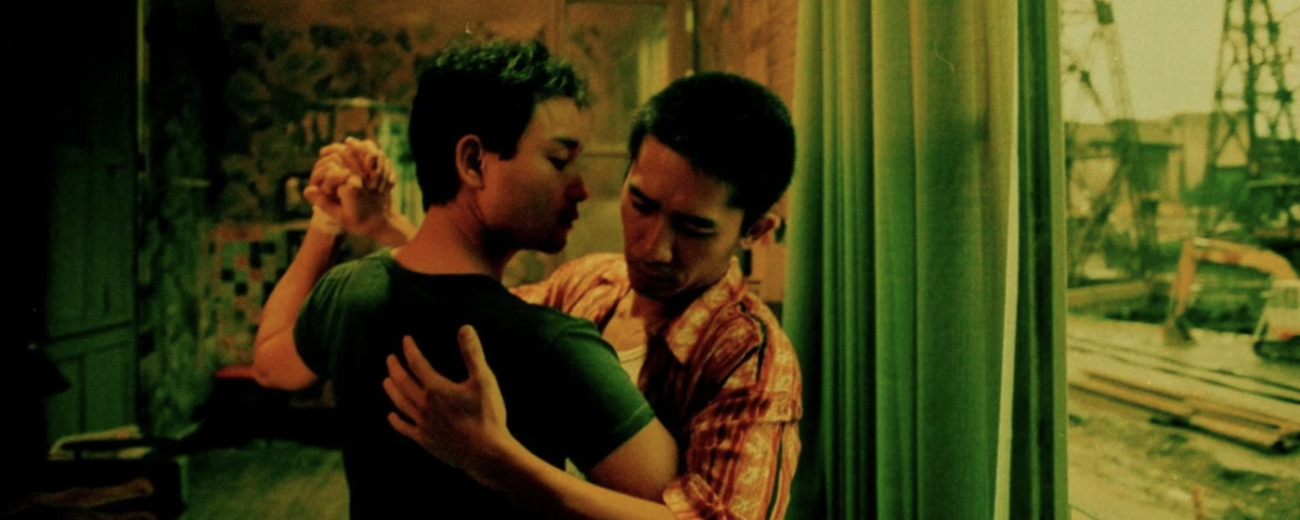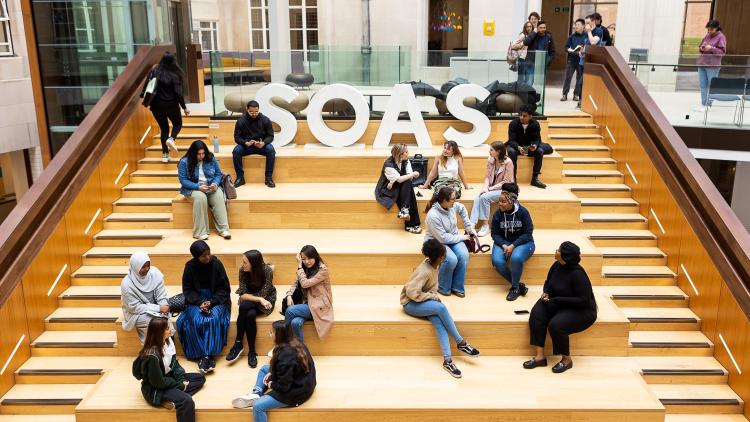Queer Chinese cinema to watch this LGBTQIA+ month


For LGBTQIA+ month, Lesley recommends three classic Chinese LGBTQIA+ films to watch and highlights the importance of having a diversity of queer stories.
In this meaningful month, our focus expands beyond the Western lens. Asian LGBTQIA+ films are a powerful expression of history, offering an alternative perspective. Delve into three Chinese cinematic treasures with me as we uncover a non-Western take on LGBTQIA+ history, discovering nuanced narratives that enrich our understanding of this diverse and vibrant tapestry.
It's crucial to appreciate the global spectrum of queer stories, particularly those emerging from regions like mainland China where legal protections for the LGBTQIA+ community are still lacking.
Happy Together (1997) - Wong Kar-Wai
春光乍泄 (Happy Together), directed by Wong Kar-Wai, is a groundbreaking Hong Kong romance film that etches a compelling narrative of love and loss. Released in 1997, the movie follows a gay couple, portrayed by Leslie Cheung and Tony Leung, as they traverse from Hong Kong to Buenos Aires, facing separation, warmth, and conflicts.
Beyond its captivating storyline, the film boldly tackles LGBTQIA+ themes in a forward-looking Hong Kong, earning its place as a standout in the New Queer Cinema movement. The mature artistic approach, impeccable camera work, and stellar performances by the lead actors contribute to its acclaim, leading to awards at esteemed festivals such as the Cannes Film Festival.
Lan Yu (2001) - Stanley Kwan
Lan Yu (蓝宇), a 2001 Chinese independent film by Hong Kong director Stanley Kwan, stars Liu Ye and Hu Jun. Adapted from the online novel "A Beijing Story," it unfolds in late 1980s and early 1990s Beijing. The narrative centres on Lan Yu (Liu Ye), a college student forced into selling his body for a living, and his relationship with Chen Han Dong (Hu Jun), an experienced lover. Initially, Chen Han Dong sees Lan Yu as a temporary companion in his playful pursuits, but as their relationship deepens, he realises his feelings for Lan Yu are extraordinary, unravelling a complex and profound love story.
As a rare LGBTQIA film in mainland China, “Lan Yu” delves into the struggles of sexual minorities during that era. The storyline intricately weaves in historical events like the Reform and Opening Up and the 89 Democracy Movement, providing a rich cultural context. Consequently, the film received accolades at the Golden Horse Awards and a Golden Film Award nomination, and garnered support from “Happy Together" actor Leslie Cheung upon its release in Hong Kong.
Intimates (1997) - Jacob Cheung
自梳 (Intimates) is a poignant 1997 Chinese LGBTQIA film directed by Jacob Cheung, featuring standout performances from Carina Lau and Charlie Yeung. Notable for exploring lesbian themes in a sparse landscape, the film background is set in war-torn 1940s Shunde, Guangdong. The narrative follows Yi Huan (Charlie Yeung), a young woman sold to a landlord by her father. Defying societal norms, she chooses the path of a self-comb woman who never marries and grows old alone to escape a grim fate. As Yi Huan stands on the brink, a chance encounter with a passing prostitute, Yu Huan (Carina Lau), alters her trajectory.
“Intimates” skillfully incorporates the far-reaching impact of China's political and war changes on individual destinies. It delves into the real-life dilemmas women face during a tumultuous era and unfolds these women's emotional complexities and individual awakenings amid chaos, portraying their perseverance and persistence within a patriarchal society. While the film may not have received as many awards as its counterparts, it undoubtedly leaves an indelible mark on the history of Chinese LGBTQIA+ cinema.
As we celebrate LGBTQIA+ month, it's crucial to appreciate the global spectrum of queer stories, particularly those emerging from regions like mainland China where legal protections for the LGBTQIA+ community are still lacking. Let these films catalyse dialogue and advocacy, urging us to collectively strive for a more inclusive world where everyone, regardless of their identity, is acknowledged, respected, and protected.
Header image credit: A still from 'Happy Together', courtesy of Mubi.
About the author
Lesley Qian is studying for a BSc in Politics, Philosophy and Economics. She is originally from China, has a keen research interest in studying Chinese philosophy, and is working towards becoming a PhD candidate. Lesley is also an animal lover and especially misses her pet dog, Dobby, who is now in China.



